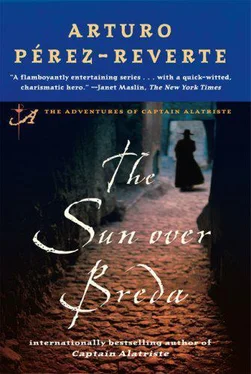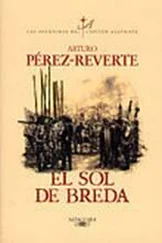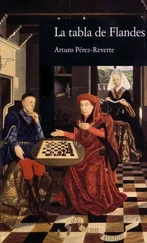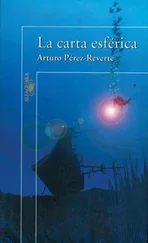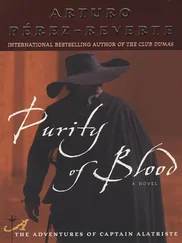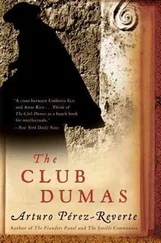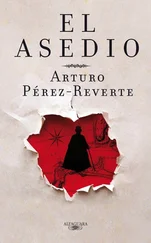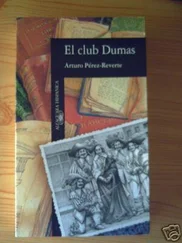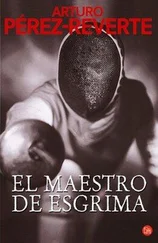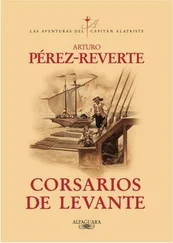Arturo Pérez-Reverte - The Sun Over Breda
Здесь есть возможность читать онлайн «Arturo Pérez-Reverte - The Sun Over Breda» весь текст электронной книги совершенно бесплатно (целиком полную версию без сокращений). В некоторых случаях можно слушать аудио, скачать через торрент в формате fb2 и присутствует краткое содержание. Жанр: Старинная литература, на английском языке. Описание произведения, (предисловие) а так же отзывы посетителей доступны на портале библиотеки ЛибКат.
- Название:The Sun Over Breda
- Автор:
- Жанр:
- Год:неизвестен
- ISBN:нет данных
- Рейтинг книги:5 / 5. Голосов: 1
-
Избранное:Добавить в избранное
- Отзывы:
-
Ваша оценка:
- 100
- 1
- 2
- 3
- 4
- 5
The Sun Over Breda: краткое содержание, описание и аннотация
Предлагаем к чтению аннотацию, описание, краткое содержание или предисловие (зависит от того, что написал сам автор книги «The Sun Over Breda»). Если вы не нашли необходимую информацию о книге — напишите в комментариях, мы постараемся отыскать её.
The Sun Over Breda — читать онлайн бесплатно полную книгу (весь текст) целиком
Ниже представлен текст книги, разбитый по страницам. Система сохранения места последней прочитанной страницы, позволяет с удобством читать онлайн бесплатно книгу «The Sun Over Breda», без необходимости каждый раз заново искать на чём Вы остановились. Поставьте закладку, и сможете в любой момент перейти на страницу, на которой закончили чтение.
Интервал:
Закладка:
The sergeant-major cleared his throat, visibly perturbed. He was the only person who, because of his rank and privileges in the tercio , could contradict Jiñalasoga. He had also known Diego Alatriste some twenty years, ever since that day in Amiens when, one being a boy and the other a youth whose mustache was just beginning to grow, they had set out together from the Montrecourt ravelin in the company of Captain don Diego de Villalobos: In four hours they had nailed down the enemy artillery and killed the last of the eight hundred Frenchmen manning the trenches, giving in exchange the lives of seventy comrades. Which was not a bad trade, pardiez : eleven of them for every one of us, if my arithmetic is correct, and a bonus of thirty.
“With all due respect, Your Mercy,” Idiáquez intervened, “Diego Alatriste is a veteran soldier. Everyone knows that his reputation is irreproachable. I am sure that—”
The colonel interrupted him with a curt gesture. “Irreproachable reputations are not granted for life.”
“Diego Alatriste is a good soldier,” Captain Bragado spoke up from the background; he had become embarrassed by his own silence.
Don Pedro de la Dago quieted him with another brusque gesture. “Any good soldier—and in my tercio they are as numerous as grains of sand—would give his arm to be at the Den Bosch gate tomorrow morning.”
Diego Alatriste looked straight into the colonel’s eyes. His voice was slow and low, as cold as the fingertips tingling to draw his dagger.
“I use my two arms to comply with my duty to the king. He is the one who pays me…when I am paid.” His pause seemed infinitely long. “As for my honor and my reputation, have no care, Your Mercy, for I see to that, with no need for anyone to offer me duels or give me lessons.”
The colonel looked at Alatriste as if he intended to remember him for the rest of his life. It was clear that he was reviewing in his mind everything he had heard, sentence by sentence, seeking one word, a tone, a nuance, that would allow him to string a rope in the nearest tree. This was so obvious that the hand covered by Alatriste’s hat slid toward his left hip, close to the hilt of his dagger. At the first sign, he thought with resigned calm, I will put this dagger through your throat, pull out my sword, and let God or the devil prevail.
“This man may return to the trenches,” Jiñalasoga said finally.
No doubt the memory of the recent mutiny tempered the colonel’s natural inclination to make use of the noose. Bragado and Idiáquez, who had been watching Diego Alatriste’s hands, seemed to relax with no little relief. Cloaking the relief that he too was feeling, Alatriste nodded respectfully, turned, and walked from the tent into the fresh air, pausing beside the halberds of the German sentinels who could, so easily, have been leading him on a scenic trip to the gallows. He stood stock-still for a moment, gratefully observing a sun that was disappearing below the dikes, a sun that he was now certain of seeing rise the next morning. Then he clapped his hat onto his head and started back to the parapets leading to the Cemetery ravelin.
That night Captain Alatriste, wrapped in his cape, lay awake almost till dawn, gazing up at the stars. It was neither the colonel’s disfavor nor fear of dishonor that kept him awake while his comrades snored around him. He did not give a fig for whatever version of the story might circulate through the tercio , for Idiáquez and Bragado knew him well and would give the episode the report it deserved. Furthermore, as he had said to don Pedro de la Daga, he would earn his own respect among his equals as well as those who were not. No, it was something else that denied him sleep. And that something was his fervent wish that at least one of the guzmanes would survive the next day at the Den Bosch gate. Preferably Carlos del Arco. For then, he told himself as his eyes drank in the firmament, time passes, life takes many turns, and a man never knows what old acquaintance he might meet in just the right place, at just the right time: in the quiet darkness, with no one around to hear the sound of ringing swords.
The next day, with our men watching from our trenches and the enemy from theirs as well as from atop the city walls, five men walked forward from the lines of our lord and king toward the encounter while another five emerged from the Den Bosch gate. These five, according to the rumor running around the camp, were three Dutchmen, a Scot, and a Frenchman. As for ours, Captain Bragado had chosen as the fifth member of the party Second Lieutenant Minaya, a thirty-year-old from the city of Soria: honorable, trustworthy, with good legs and a better hand. Both teams came wearing a sword and two pistols at the waist but no dagger; it was said that the challengers had not included them because everyone knows how dangerous a Spaniard with a dagger can be in close combat.
I had returned the previous night from three days of foraging—which had taken me, along with a crew of mochileros , almost to the banks of the Mosa—and now I was standing in the crowd with my friend Jaime Correas on top of some gabions, for once unafraid of being struck by a musket ball. Hundreds of soldiers were watching from every quarter, and it was rumored that the Marqués de los Balbases, our General Spínola, was himself observing the challenge in the company of don Pedro de la Daga and the captains and colonels of the remaining tercios. As for Diego Alatriste, he was in one of the forward trenches with Copons, Garrote, and others from his squad, with very little to say but with his eyes firmly fixed on the antagonists. Second Lieutenant Minaya, no doubt informed by our Captain Bragado, had done something that was the act of a good comrade: He had come by earlier that morning and asked to borrow one of Alatriste’s pistols, using the pretext that he had some problem with his, and now he was walking to the fight with that pistol at his waist. It said a great deal in his favor and prevented acrimony within the bandera . I will add here that many years later, after Rocroi, when the vagaries of fortune had made me an officer in the Spanish guard of King Philip, our lord and king, I had occasion to do a favor for a young recruit named Minaya. I did so without a moment’s hesitation, remembering the day when his father had the good grace to wear Captain Alatriste’s pistol as he went to the encounter below the walls of Breda.
So there they were that April morning, with a warm sun overhead and thousands of eyes focused on them: five against five. They met in a small meadow that sloped down about a hundred paces toward the Den Bosch gate onto unclaimed land. There were no preliminaries, no doffing of hats or other courtesies. Instead, as one group neared the other they began to fire and to draw their swords, at which both camps of watchers, who had until that instant observed in mortal silence, burst into a clamor of encouraging cries to their respective comrades. I know that from the beginning of time, well-intentioned people have condemned violence and preached peace and God’s word, and I, better than many, know what war does to a man’s body and soul, but despite all that, despite my capacity to reason, despite my common sense and the lucidity lent by years, I cannot help but shiver with admiration when I witness the courage of valiant men. And God knows those men were.
Don Luis de Bobadilla, the younger of the two guzmanes , went down with the first shots, while the others closed in on each other with great energy and deadly intent. One of the Dutchmen was felled by a pistol shot that broke his neck, and another of his companions, the Scot, was wounded in the torso, run through by the sword of Pedro Martín, who lost it there. Finding himself with no sword and two discharged pistols, he was then knifed in the throat and chest, falling upon the man he had just killed. As for don Carlos del Arco, he engaged the Frenchman so skillfully that, between thrust and counterthrust, he was able to aim a shot at his face, though he then withdrew from the fight, hobbled by a wicked wound to his thigh. Minaya finished off the Frenchman with Captain Alatriste’s pistol and badly wounded the second Dutchman with his own, emerging without a scratch himself. And Eguiluz, his left hand crippled by a musket ball but with his sword in his right, dealt two clean blows to the last of their opponents, one on an arm and the other to the flank. The heretic, seeing himself wounded and alone, resolved, like Antigone, not to flee exactly, but to fall back and check his resources. The three Spaniards still standing relieved their adversaries of their weapons and their bands, which were orange, according to the custom of those who served the Estates General. They would even have carried the bodies of Bobadilla and Martín to our lines had the Dutch, furious at the outcome, not consoled themselves over their defeat with a hailstorm of musket balls. Our men, therefore, were slowly quitting the field when a musketeer’s lead struck Eguiluz in the kidneys, and although, helped by his companions, he reached the trenches, he died three days later. As for the seven bodies, they lay on open ground almost all day, until there was a brief truce at dusk and each side was able to recover its own.
Читать дальшеИнтервал:
Закладка:
Похожие книги на «The Sun Over Breda»
Представляем Вашему вниманию похожие книги на «The Sun Over Breda» списком для выбора. Мы отобрали схожую по названию и смыслу литературу в надежде предоставить читателям больше вариантов отыскать новые, интересные, ещё непрочитанные произведения.
Обсуждение, отзывы о книге «The Sun Over Breda» и просто собственные мнения читателей. Оставьте ваши комментарии, напишите, что Вы думаете о произведении, его смысле или главных героях. Укажите что конкретно понравилось, а что нет, и почему Вы так считаете.
